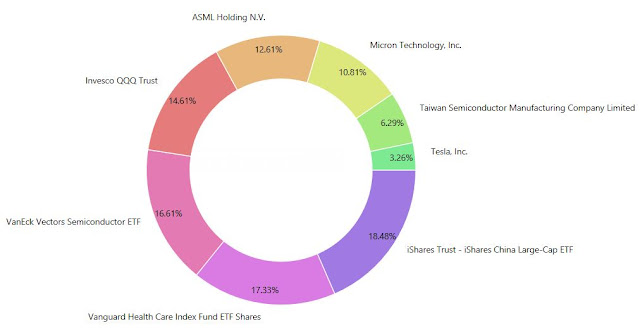Opinion on Factor-Based Investing Strategy
 |
| Source: BlackRock |
Recently, I came across the term 'factor-based' investing and decided to take a deeper look on whether this strategy could be applied to my investment portfolio.
Factor-based or risk-weighted investing is a diversification strategy that determines how one should allocate stocks in their portfolio based on 'factors' in order to achieve higher returns. The strategy can be used together with a passive investing strategy to form what is known as the Smart Beta strategy. The strategy is touted as the combination of both passive and active investing strategy having the best of both worlds. Traditional investment strategy involves diversification across different asset classes and these asset classes are driven by multiple risk and return factors. Factor-based investing focuses on these factors rather than the asset class itself as the each class could be driven by multiple factors. There could also be overlapping factors across different classes. Therefore, factor-based investing is supposed to provide better diversification as compared to asset class diversification. These factors driving risk and return commonly include the following.
- Value
- This involve using P/E and P/B ratios to determine if the stock is undervalue.
- Size
- The market capitalization of the company. The assumption that the smaller cap companies provide higher returns.
- Earning Momentum
- This involve using EPS ratio to determine the earning prospect of the company.
- Volatility
- This involve the use of Beta.
- Quality
- This is determined by low debt, stable earning, consistent growth stock.
At this point, you will probably realized the challenges of implementing such a strategy manually.
- How to classify stocks accordingly to these factors accurately?
- What are the corresponding returns for each factor?
- What weightage should be allocated to each factor?
- What is the effort is needed to maintain such a portfolio?
It will be too tedious to adopt such a strategy without a proper screening tool providing accurate information on each stock and the corresponding classification based on the factors. This seems to be more of a job for future robo-advisors or ETF, and not a strategy for the traditional investors. An example is the recent Phillip SING Income ETF which uses a Smart Beta investing strategy. Such strategy if done individually will involves high maintenance effort and constantly need to be rebalanced depending on the factors driving the returns.
I have no means to adopt such an strategy and noted there could be complexity bias when deciding to use a complex strategy like factor-based investing. Does a complex investing strategy makes it a better strategy?
"Complexity is more expensive. Complexity is more fragile, less robust. Complexity leads to procrastination."





Comments
Post a Comment